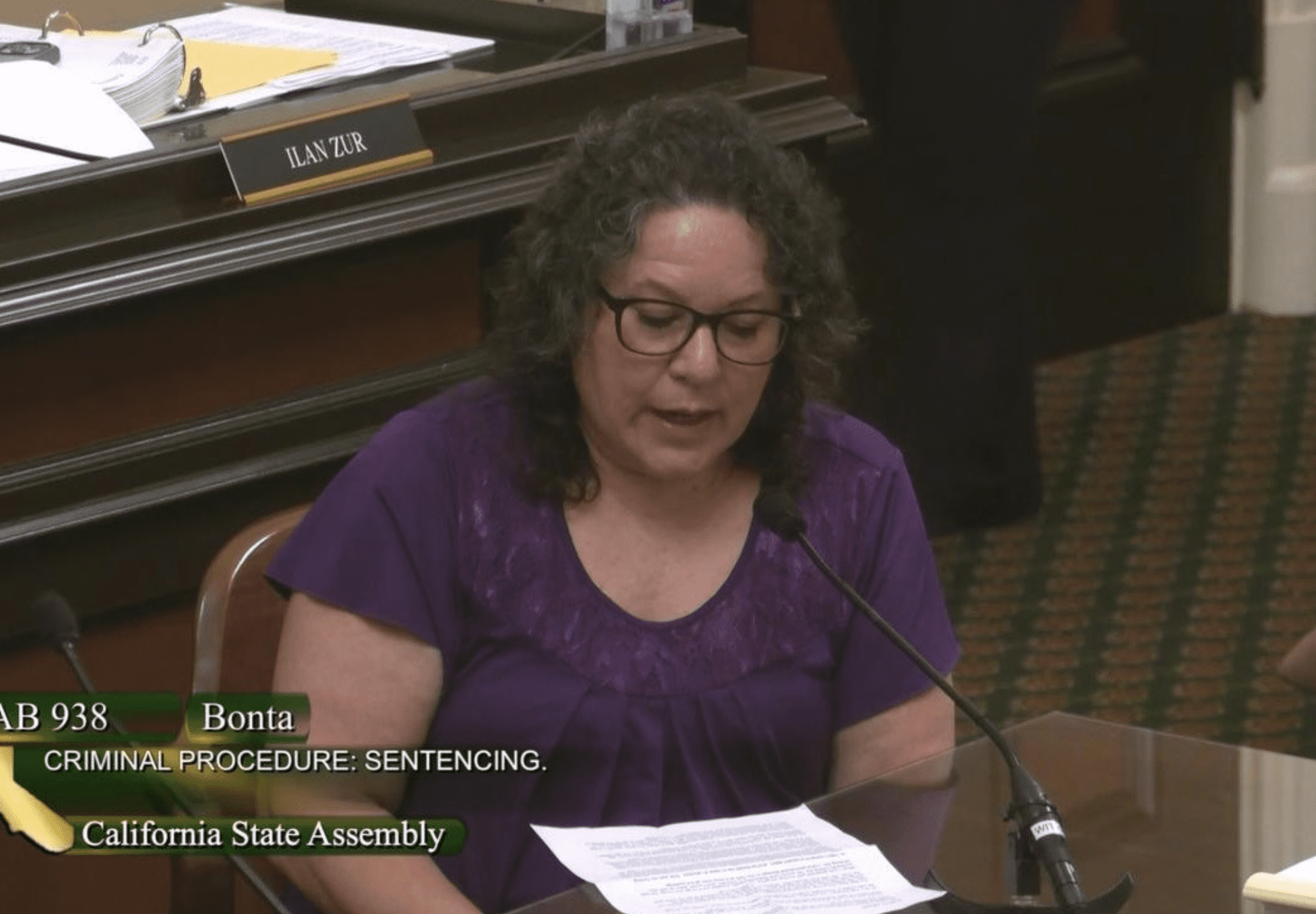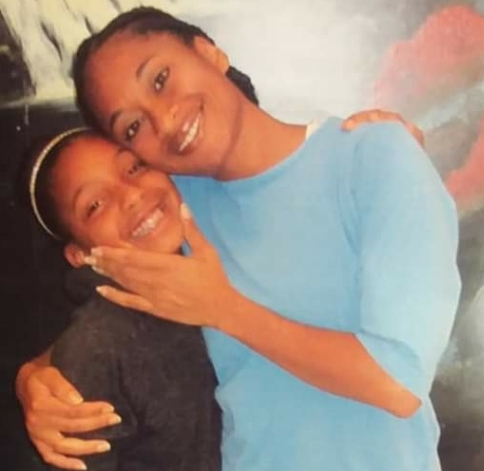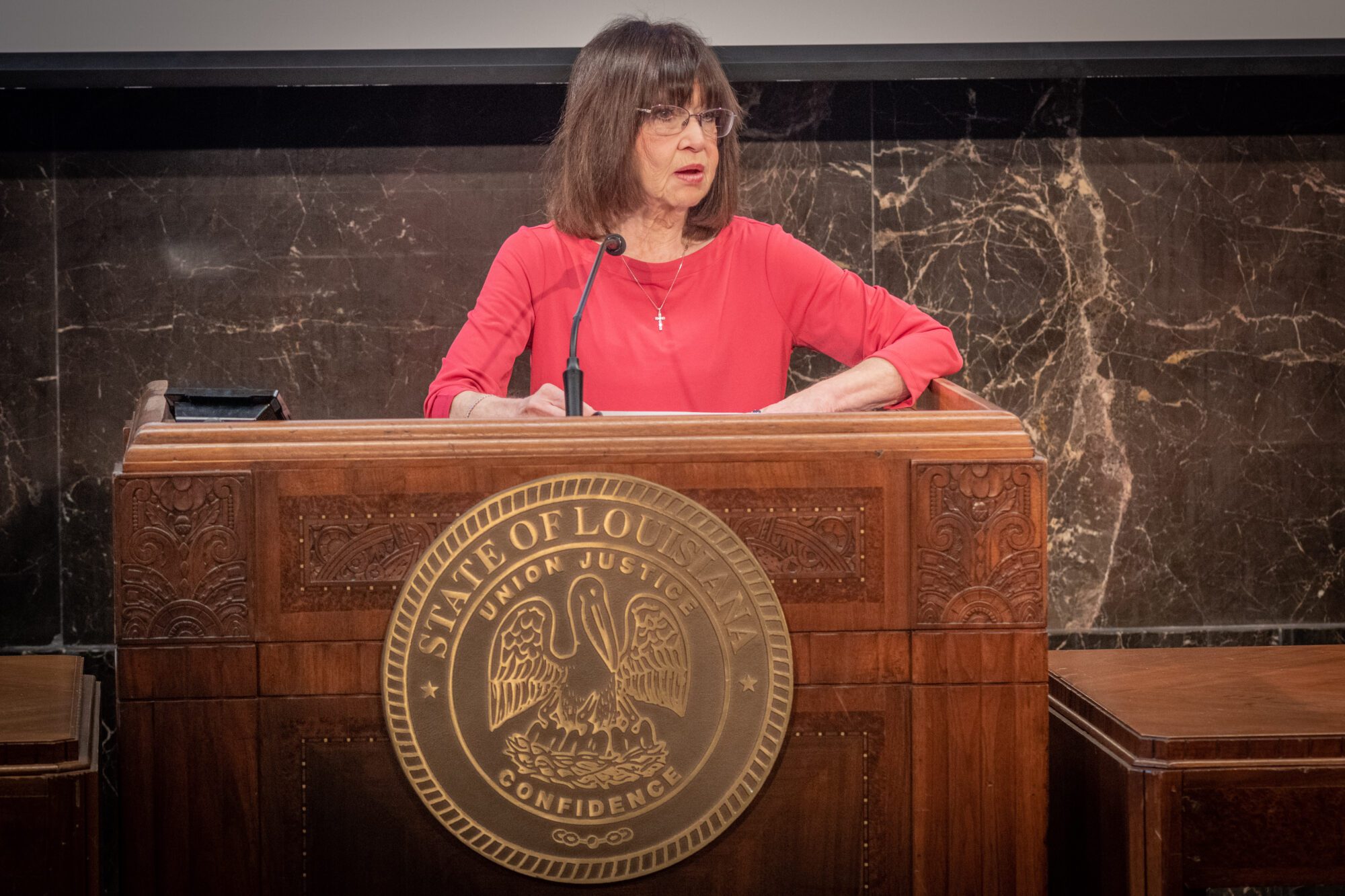For Third Year, California Kills Bill to Help Incarcerated Domestic Violence Survivors
Advocates in California have pushed for relief for people convicted of harming their abuser, hoping to build on states across the political spectrum that have adopted such reforms.
| September 23, 2025

Just before her 25th birthday, Susan Bustamante confided in her brother about the violent abuse she had suffered from her husband. She says her brother had protected her from her abusive father in the past, so she turned to him again after her husband threatened to hurt her family if she left him. “He told me don’t worry sis, I’ll take care of it,” Bustamante said in public testimony earlier this year. “The idea that he would kill him never occurred to me.”
After Bustamante’s brother murdered her husband, she was convicted of helping him plot the killing. During her two-day trial, she was barred from testifying about the abuse she endured for years, which wasn’t seen as relevant to her case. Anytime she tried to talk about the abuse during the trial, it was struck from the court record. She was sentenced to life without parole.
At the time she was sentenced, Bustamante’s daughters were eight and 11 years old. She said she missed their weddings, the births of their children and the death of her sister. She was granted clemency in 2017 and released from prison in 2018 after 31 years of incarceration.
In March, Bustamante found herself sitting before California lawmakers, testifying about the abuse she experienced from her husband and how she was silenced in court. She asked for them to pass state legislation to help give other survivors of domestic abuse who are still in prison for crimes related to their abuse a chance at release. She also told lawmakers how the experience of incarceration retraumatized her.
“I’m a survivor of domestic violence, of child molestation, and a survivor of the California prison system, which as you were speaking earlier, it’s horrific,” Bustamante told lawmakers. “I’m an advocate for victims and survivors who should have the chance to at least tell their stories in court.”
Bustamante and other survivors of domestic violence who went to prison for crimes related to their abuse have for years asked California lawmakers to pass reforms making courts take the abuse into consideration. The legislation Bustamante was testifying in support of, Assembly Bill 938, would have expanded affirmative defenses and post-conviction relief for people who could establish that their arrest or conviction was a direct result of being a victim of human trafficking, intimate partner violence, or sexual violence.
“If AB 938 was law then, I would have been able to share my story,” Bustamante said during her testimony. “Maybe I would have been able to access affirmative defense or get a different sentence, or maybe it would have turned out the same, but I would have been able to speak my words to share what happened to me.”

Supporters of the reform say it would offer a pathway out for more survivors who are still incarcerated after being convicted for the death of an abuser, or those coerced by an abuser into committing a crime or blamed for something an abuser did. This year’s version of the legislation, as initially filed by Assemblymember Mia Bonta, would have also allowed more survivors who already got out of prison a chance to clear their records.
“These convictions create lasting barriers to employment, housing, and education,” Bonta said in a statement attached to the bill. “AB 938 expands access to post-conviction relief, ensuring survivors can present the full context of their victimization in court.”
The state Assembly passed AB 938 by a large margin in early June. But the bill then failed to clear the California Senate by the end of the state’s legislative session this month. This represented advocates’ third unsuccessful attempt in recent years to expand post-conviction relief for survivors of intimate partner violence in California, even as other states across the political spectrum have adopted similar reforms.
Bustamante told Bolts that she cried when she found out that this year’s bill had failed.
“We were so far, and we had done so much work, and we were so hopeful, because it looked good,” Bustamante said. “But the climate right now is for punishment, not for restoring things or not for looking at what’s right.”
Bustamante and other advocates in California have long been fighting for legislation that helps incarcerated domestic violence survivors go home. In 2021, she was part of a coalition that successfully passed legislation expanding post-conviction relief and affirmative defenses to survivors who committed nonviolent crimes.
Recognizing that many survivors were still being left behind, advocates started pushing for legislation expanding those protections to survivors convicted of all crimes.
But bills they supported in 2023 and 2024 failed to pass either legislative chamber, let alone make it to the governor’s desk, as prosecutor’s associations and police groups opposed the reforms.
While it was being considered in the Senate this summer, this year’s bill was eventually amended to exclude people who were convicted of murder—unless it was felony murder, which means they personally didn’t commit the killing. But ultimately that concession still wasn’t enough for this year’s bill to pass.
Jamie Beck, a lawyer who specializes in working with survivors of abuse and sexual violence and who supported the reform bill, said she believes that fearmongering over allowing “violent” offenders out of prison has prevented this legislation from passing.
“They are using this language to get people riled up, and they basically say it’s going to allow murderers to essentially to get out of prison or to get the records cleared, or to not have criminal liability for their actions, which is not at all what this bill does, but that’s kind of the language used around it to scare people and fearful that if this law passes, and so that’s that we’re up against,” Beck said.
Beck said she’s also disappointed that California did not pass this legislation when other states, including Republican-led states, have already passed similar reforms. Bolts reported last year on Oklahoma passing a law giving incarcerated survivors a new chance at freedom, emulating a similar law in New York. Georgia’s governor signed similar legislation earlier this year.
“There’s a ton of states that are far more conservative than California that passed more extensive legislation through Republican run legislatures, so any claim that this is a very progressive bill just doesn’t align with what other states are doing,” Beck said. “I just think there’s a real misalignment, and California’s really behind a lot of the country on this.”
In addition to providing a pathway out of prison for more survivors, advocates for the California bill had hoped it would help survivors who already got out rebuild their lives by offering a chance to erase previous convictions. Bustamante, a re-entry coach at a transitional housing program that helps criminalized survivors of abuse, says she sees firsthand how hard it can be for survivors to start over with a criminal record that can pose barriers to finding jobs and housing.
“I can picture all the people it would help, all the people who aren’t going to be judged by the worst day of their life that took them to prison,” Bustamante said.
Beck said she has seen people who can’t volunteer at their kid’s school because they have a record, or be limited to poor employment opportunities and possible further sexual harassment when people see their records. She said “it becomes impossible to move past whatever label was put on you.”
Beck and Bustamante said they plan to continue advocating for legislation that helps all survivors. “Survivors are resilient, and there’s so many left behind, and so many that this bill would have helped, that you can’t stop and just say, ‘Oh, well.’ You can’t do that,” Bustamante said.
Tomiekia Johnson is one of those survivors still waiting for a way out.
Since 2012, the mother and former law enforcement officer has been incarcerated for the death of her abusive husband. She testified in her own defense at trial, tearfully telling jurors he had attacked her during an argument and that she accidentally shot him during their struggle for a gun. Johnson said she was naive to the abuse and stayed in the marriage even after he had tried to take her life multiple times, but was prevented from fully testifying about that history of abuse in court. She was sentenced to 50 years in prison.

“It was easy for them to assassinate my character, make things up, get people to lie on the stand, coerce people to give testimony, to paint this really dark picture of me like some mad, angry Black woman, they painted the perfect portrait to make sure that the jury pool was tainted,” Johnson told Bolts. “Silencing my tears, vulnerability and human emotions was a normal practice.”
Johnson said she has done her best to be productive in prison: She has been a facilitator for self-help groups, physical trainer and minister while also being mother to a daughter who just went to college on a basketball scholarship.
She has been working with advocates in recent years to petition Governor Gavin Newsom for clemency—which seems to be her only pathway out if lawmakers won’t expand post-conviction relief to survivors like her.
Johnson said that her time in prison has been retraumatizing. Her first cellmate in the Central California Women’s Facility was also abusive to her. She said she “experienced more trauma than I experienced with my own husband, just not physical, all mental and verbal, but more painful.”
She said she used to trust the justice system, but now that trust is destroyed. She hopes the governor will grant her clemency so she can continue to advocate for survivors out of prison.
“He knows my accomplishments, he knows how I have withstood all this toxic chaotic behavior here,” she said.
Sign up and stay up-to-date
Support us
Bolts is a non-profit newsroom that relies on donations, and it takes resources to produce this work. If you appreciate our value, become a monthly donor or make a contribution.




